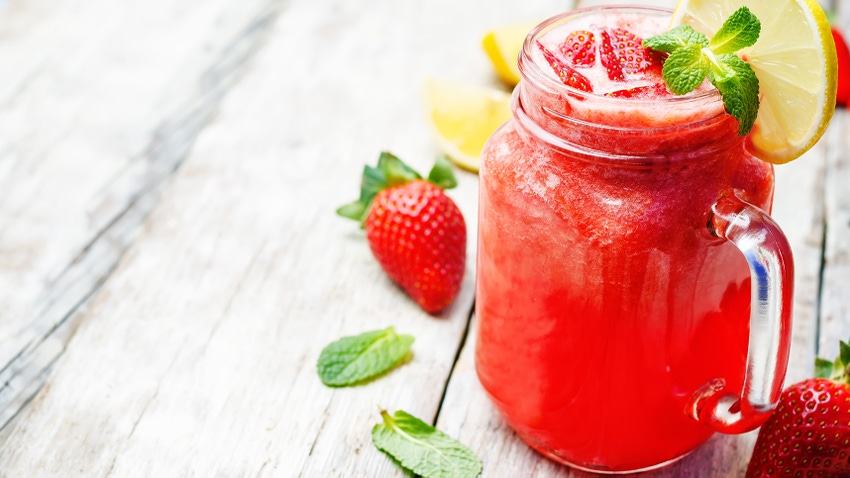Business Bites: Panera Bread faces lawsuit following second death linked to Charged Lemonade
On this week’s plate: A recent lawsuit filed against Panera Bread alleges its Charged Lemonade caused another death; a poultry processor and supplier pays almost $4 million in damages and fines after being found guilty of illegally endangering children; World Health Organization (WHO) calls on companies worldwide to impose special tax on alcohol and sugar-sweetened beverages; and more.

At a Glance
- Panera Bread is sued over a second death linked to its caffeinated Charged Lemonade products.
- The Exclusive Poultry Inc. is ordered to pay $3.8 million in back wages, damages and penalties.
- WHO advises companies globally to impose an additional tax for alcohol and sugar-sweetened beverages.
Things aren’t looking too good for Panera Bread, which is facing another lawsuit following a second death linked to its Charged Lemonade. A 46-year-old man from Florida passed away on Oct. 9 after consuming three of the popular beverages, which each reportedly contain more caffeine than standard cans of Red Bull and Monster energy drinks combined. Also in this week’s column, a Southern Californian poultry processor and supplier is under scrutiny—and doling out some hefty payouts—after illegally endangering minors, undercompensating workers, and unlawfully retaliating against current and former employees. Learn more below.
Panera Bread sued over second death related to caffeinated lemonade
Bakery and café chain Panera Bread is being sued after a second death was linked to one of its Charged Lemonades, which contains up to 237 mg of caffeine based on the restaurant’s current menu and up to 390 mg in the past, according to other sources. Dennis Brown reportedly consumed three of the caffeinated lemonades with his meal before dying from cardiac arrest on his walk home. FDA suggests most healthy adults can safely consume up to 400 mg of caffeine per day, but more brands offering caffeinated versions of traditionally caffeine-free products highlight a growing need for clear nutritional labeling. Panera warns that their caffeinated products are “not recommended for children, people sensitive to caffeine, [and] pregnant or nursing women,” but the lawsuit argues that this disclaimer on the menu was insufficient to avoid the incident.
Californian poultry processor illegally endangered children, robbed workers of wages
The Exclusive Poultry Inc., based in Los Angeles, is under fire from the U.S. Department of Labor (DOL). The company—which processes and supplies poultry to supermarkets and food distributors, including Aldi, Grocery Outlet, Ralphs and Sysco Corp.—illegally employed children as young as 14 years old to debone poultry using sharp knives and drive forklifts, and violated federal child labor regulations at two of its plants in La Puente, California. It also failed to pay workers required wages, particularly overtime, and unlawfully retaliated against employees who cooperated with investigators by cutting their wages. As a result, the company agreed to pay $3.8 million in back wages, damages and penalties after being found guilty by DOL. The judgement also requires The Exclusive Poultry Inc. be monitored for three years to ensure compliance with federal laws and regulations and show a hiring preference for the workers illegitimately fired following DOL’s investigation. DOL is currently seeking any current or former employees of The Exclusive Poultry Inc., or any of the front companies it created to illegally employ workers at the plants—Meza Poultry, Valtierra Poultry, Sullon Poultry or Nollus’s Poultry—who believe they may be owed back wages.
WHO seeks increased taxes on alcohol, sugar-sweetened beverages
WHO is on a mission to reduce the consumption of F&B products that have negative health impacts. The agency created health taxes as a precautionary step, which countries can apply to certain products, such as alcohol and sugar-sweetened beverages that have associated risk factors for noncommunicable diseases, to make them less affordable. WHO recently conducted research that showed most countries around the world aren’t utilizing the taxes for these products, though a recent Gallup Poll conducted in collaboration with WHO and Bloomberg Philanthropies found many people surveyed globally support increasing taxes on them. According to WHO, 108 countries are taxing some sort of sugar-sweetened beverage and at least 148 countries applied excise taxes to alcoholic beverages. Wine is exempt from taxes, however, in at least 22 countries (most of which are in the European Union).
“Taxing unhealthy products creates healthier populations,” Dr. Rüdiger Krech, director of health promotion at WHO, said. “It has a positive ripple effect across society—less disease and debilitation and revenue for governments to provide public services. In the case of alcohol, taxes also help prevent violence and road traffic injuries.”
Sens. Markey and Booker aim to eliminate GRAS
On Nov. 21, Sens. Edward J. Markey and Cory Booker announced the Ensuring Safe and Toxic-Free Foods Act, which would direct the Department of Health and Human Services to create an Office of Food Chemical Safety, Dietary Supplements and Innovation within FDA to reassess the safety of additives and other substances used in food production and packaging. The bill seeks to reduce conflicts of interest and strengthen regulations surrounding the generally recognized as safe (GRAS) designation by ending the legal entitlement to market foods based on self-determined GRAS, a label that allows manufacturers to add chemicals to foods without FDA review. Manufacturers would also be required to notify FDA with supporting documentation, which is currently voluntary, and to display the notification and accompanying information on FDA’s website for 90 days. Although the full bill is not yet available online, legislation with the same name was introduced in 2022.
USDA finalizes updates to list of bioengineered foods
USDA’s Agricultural Marketing Service (AMS) published an update to the National Bioengineered Food Disclosure Standard’s List of Bioengineered Foods. The standard, 7 CFR Part 66, requires AMS to identify bioengineered products—specifically, foods that contain genetic modifications that cannot be found in nature or through conventional breeding and are approved for or currently used in commercial production. This update adds “sugarcane (Bt insect-resistant varieties)” to the list and amends the entry for “squash (summer),” changing it to “squash (summer, coat protein mediated virus-resistant varieties).” The rule becomes effective on Dec. 29, and mandatory compliance begins June 23, 2025.
McCormick unveils Flavor Forecast 24th Edition and 2024 Flavor of the Year
McCormick Flavor Solutions, one of the many McCormick & Co. brands, recently released the 24th edition of its Flavor Forecast. The annual report highlights the latest trends shaping the way people enjoy flavors worldwide to inspire future product innovations. This year’s report emphasized three themes: Sour Power, Thoughtfully Borrowed and Indulgence Redefined. With this year’s report, McCormick & Co. also unveiled its 2024 Flavor of the Year, tamarind, which it honored with the release of a new tamarind & pasilla chile naturally flavored seasoning. The company is also collaborating with Black Tap Craft Burgers & Beer to co-develop three limited-time dishes featuring tamarind—a chicken burger, fries and milkshake—which will be available at the restaurant’s locations nationwide beginning Feb. 1, 2024.
About the Author(s)
You May Also Like








